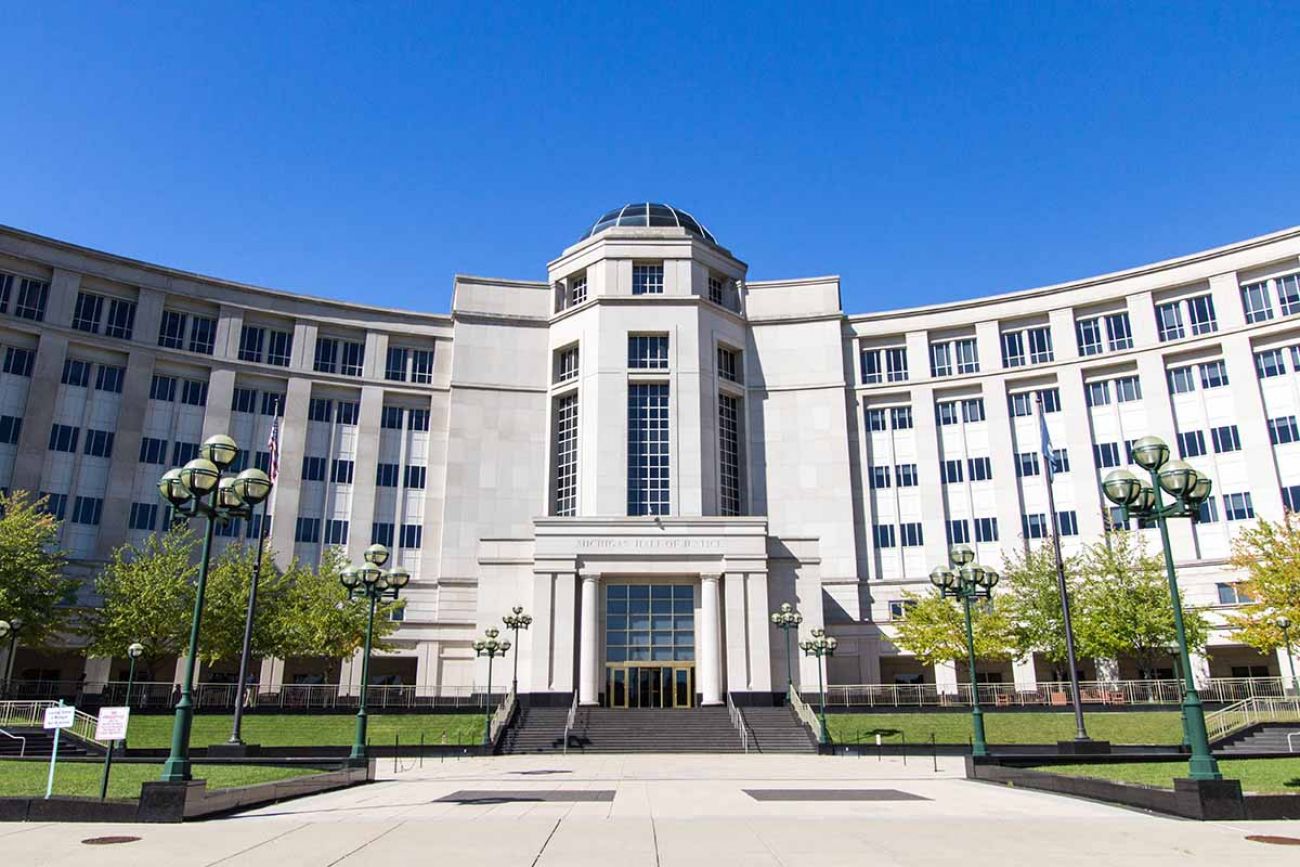Michigan Supreme Court: Richard Bernstein, Brian Zahra retain seats

- Justice Richard Bernstein was the leading vote-getter among five candidates for the two contested seats
- A second incumbent, Brian Zahra, also won
- The results maintain the 4-3 advantage among Democratic-nominated justices
Nov. 22: Kyra Harris Bolden makes history with appointment to Michigan Supreme Court
Nov. 21: Elizabeth Clement, a moderate on Michigan Supreme Court, named chief justice
This post was last updated Wednesday at 8:20 a.m.
Michigan Supreme Court justices Richard Bernstein and Brian Zahra were reelected to the high court on Tuesday, maintaining the 4-3 advantage for justices nominated by the Democratic Party.
Bernstein, nominated by the Democratic Party, had 33.4 percent of the votes counted with 82 percent of votes counted. He was the leading vote-getter among the five candidates running for two seats.
Zahra, nominated by Republicans, had 24.3 percent of the vote while State Rep. Kyra Harris Bolden, a Democrat nominee, has 21.4 percent of votes.
Zahra of Northville Township was first appointed to the Michigan Supreme Court in 2011 by then-Gov. Rick Snyder. He was elected to a partial term in 2012 and a full term in 2014. He graduated from Wayne State University and the University of Detroit School of Law.
Related:
- 2022 Michigan election updates
- Turnout stronger than expected in Michigan; 4 million votes likely
- Gretchen Whitmer Tudor Dixon race
Bernstein was first elected to the court in 2014, becoming the state’s first blind justice. He previously worked in his family’s law firm, The Sam Bernstein Law Firm in Farmington Hills, where he specialized in disability law. He is a graduate of the University of Michigan and the Northwestern University School of Law.
Bolden, who ran a close third, would have been the first Black woman to be on the state’s highest court. She graduated from Grand Valley State University and the University of Detroit Mercy School of Law.
The justices run on the nonpartisan section of the ballot but they are nominated by the state’s political parties. The seven-member bench currently has four members who were nominated by Democrats and three nominated by Republicans.
Chief Justice Bridget McCormack, nominated by Democrats and not up for reelection this year, has said she will retire after the election, which will allow Democratic Gov. Gretchen Whitmer to appoint someone to fill part of McCormack’s remaining term.
The high court played a pivotal role in the election this year and seems poised to play a major role in helping to shape abortion rights in the state.
After the State Board of Canvassers was locked in a 2-2 split on approving or denying the abortion rights ballot proposal (Proposal 3) and a voting rights ballot proposal (Proposal 2), the court ruled that the proposals met requirements to be on the November ballot.
With the passage of Proposal 3 Tuesday, the state’s highest court will likely face a series of decisions on existing or future laws related to abortion, including whether minors need parental consent to have an abortion, who is allowed to perform the procedure and what rules can exist around abortions later in a pregnancy.
There are also two pending lawsuits challenging the state’s (currently suspended) 1931 law that bans abortions except to save the life of a mother. Abortion had remained legal in Michigan as the lawsuits played out. Apart from Prop 3, Gov. Gretchen Whitmer also has urged the Supreme Court to rule that the text of the state constitution already provides the right to an abortion, a legal effort that is now likely moot with the passage of Proposal 3.
The Supreme Court also recently upheld poll challenger rules crafted by Secretary of State Jocelyn Benson. Republicans had argued that the guidance issued by Benson’s office in May would impermissibly restrict their right to challenge vote tallies Tuesday. But the court majority ruled that changing the guidance so close to the election would be confusing to clerks and not provide enough time for newly recommended procedures.
See what new members are saying about why they donated to Bridge Michigan:
- “In order for this information to be accurate and unbiased it must be underwritten by its readers, not by special interests.” - Larry S.
- “Not many other media sources report on the topics Bridge does.” - Susan B.
- “Your journalism is outstanding and rare these days.” - Mark S.
If you want to ensure the future of nonpartisan, nonprofit Michigan journalism, please become a member today. You, too, will be asked why you donated and maybe we'll feature your quote next time!




